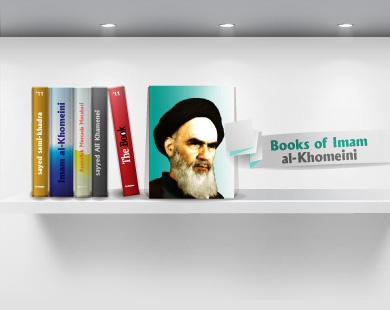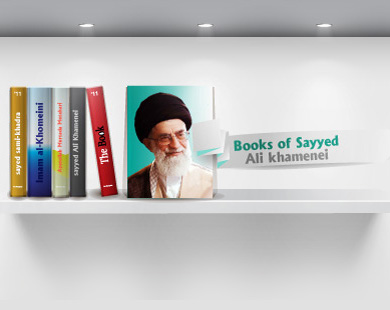Pathing through the straight path cannot be achieved without having the moral and inner blessings because apparent blessings are the means that a devil beatifies to deceive people:” Satan responded, “My Lord! For allowing me to stray I will surely tempt them on earth and mislead them all together” [1], “I will certainly mislead them and delude them”[2]. The devil, through beautifying the earth’s blessings and adornments, let a man fall into the trap of short and long hopes.
The Holy Quran doesn’t consider the apparent adornment (such as the decoration of the house and the orchard) as life’s decoration, but a means to test a man. It describes them as temporal issues. “We have indeed made whatever is on earth as an adornment for it, in order to test which of them is best in deeds. And We will certainly reduce whatever is on it to barren ground”[3] because every life’s blessing, including the prestige and worldly position, has a happy duration and another fading duration. Then, beauty and apparent pleasures are the adornment of the earth and its consequence is that it becomes debris, disintegrates and changes into the barren ground.
From the Quran perspective, a man’s beauty is his “faith”: “But Allah has endeared faith to you, making it appealing in your hearts. And He has made disbelief, rebelliousness, and disobedience detestable to you”[4]. Therefore, those who are deceived by life's decoration are under the mandate of evil. On the other hand, those who follow the moral values are under the mandate of God, the most merciful.
Distinguishing between (the adornment of the earth) and (the adornment of the heart) is not a very difficult matter. But a man, due to the temptation of evil, sometimes sees grudges as a blessing, so he rejoices and gets comfortable with it, like the hypocrites and those with sick hearts who see separation from the nation of Islam and abandoning jihad as a blessing.
God Almighty, after ordering to prepare and take precautions and beware of the attack of the enemies, and announcing the general and individual mobilization, says: “O believers! Take your precautions and go forth either in groups or together. There will be some among you who will lag behind so that if you face a disaster, they will say, “Allah has blessed us for not being there among them. But if you return with Allah’s bounties, they will say—as if there had been no bond between you—“We wish we had been there with them to share the great gain!” [5]
So protection from harm and injury on the battlefronts and not being present in the fields of jihad is a false blessing. The Quranic discourse did not recognize it as a blessing. Those who, when they see the martyrs of the fighting battlefronts, say “God has favored us because we did not go to the fight” and when they read the Ziyarat of the Martyrs of Karbala, say: “We wish we were with you” are liars because if they were really from the people of the battle and the war, they would have been on the side of the fighters or with the martyrs: “No one would ask for exemption except those who have no faith in Allah or the Last Day, and whose hearts are in doubt, so they are torn by their doubts. Had they ?really? intended to march forth, they would have made preparations for it. But Allah disliked that they should go, so He let them lag behind, and it was said ?to them?, “Stay with those ?helpless? who remain behind.”[6] This means that God almighty hates to achieve his religion’s victory at the hands of those. That’s why he let him lag behind and stay with the helpless. “His speech is an act of His creation”[7]. Then, this command is one of the behaviors of God as he sat those behind with patients, children and old people…
Accordingly, what is mentioned in the Quran under the title of being a blessing is of three types:
a. Moral and inner blessings: These are the divine gifts that pave the way for human happiness.
B. Apparent blessings: They are sometimes used in the service of religion, and sometimes they are a reason for anger and deviation from religion.
c. False and delusional blessings: such as protection from harm and injury on the battlefronts of the war of truth against falsehood.
Ayatollah Al Sheikh Jawad Al ‘Amili
[1] Surah Al Hijr verse 39
[2] Surah Al Nisa’ verse 119
[3] Surah Al Kahf verses 7-8
[4] Surah Al Hujurat verse 7
[5] Surah Al Nisa’ verses 71 to 73
[6] Surah Al Tawbah verses 45-46
[7] Nahj Al Balagha, sermon 186, part 17




















